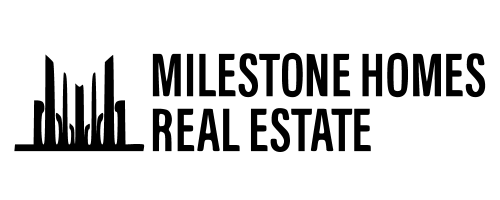Buying a property in Dubai is a major milestone for anyone. The city continues to attract buyers from around the world because of its tax-free environment, modern lifestyle, and strong real estate market. With new developments launching every year and flexible payment plans available, more residents are now considering home ownership instead of renting. Understanding the minimum salary Dubai home loan buyers need is the first step toward planning this journey wisely.
But before you begin your search for the perfect community or start comparing property prices, it’s important to understand one crucial factor: the salary you need to qualify for a home loan in Dubai. Every bank in the UAE has clear rules on income, debt limits, credit scores, and down payments. These rules determine how much you can borrow and how affordable your monthly instalments will be.
In this 2025 guide, we break down the minimum salary required for a mortgage in Dubai, the mortgage eligibility criteria, and the borrowing limits set by the UAE Central Bank. You will also learn how much down payment you need, how banks calculate your affordability, and what income levels match different property prices.
Minimum Salary Required for a Home Loan in Dubai (2025)
Before banks approve any mortgage application in Dubai, they first assess your income. Your salary is one of the strongest indicators of how much you can borrow and how comfortably you can manage your monthly instalments. In the UAE, mortgage eligibility is heavily based on income stability, spending habits, and your overall debt profile. This is why understanding the minimum salary required for a mortgage in Dubai is an essential first step for buyers.
Banks follow UAE Central Bank guidelines, but each lender sets its own minimum income thresholds. The salary needed for a home loan in Dubai may vary depending on whether you’re an expat, a UAE national, or a self-employed professional. Higher salaries generally allow buyers to access larger loan amounts, while lower salaries may still qualify, but with stricter conditions.
Here’s the general breakdown:
- Minimum salary for home loan Dubai: AED 12,000
- Higher-value properties often require a higher monthly income.
Banks look at your salary to determine if you can manage monthly repayments without financial strain. So a steady income increases eligibility.
Down Payment Requirements in Dubai
When buying property in Dubai, your down payment is one of the most important upfront costs to consider. This is the portion of the property price you pay yourself before the bank provides a mortgage. The down payment amount not only affects your mortgage eligibility, but also determines how much you can borrow and the size of your monthly instalments.
The minimum down payment in Dubai depends on several factors, including your residency status, the property type, and its value. UAE nationals often benefit from slightly lower requirements, while expats may need to pay a larger percentage. Understanding these rules is essential for budgeting and planning your property purchase in 2025.
Here’s a breakdown of the down payment requirements for Dubai home buyers:
Your down payment depends on your residency status.
For Residents in Dubai:
- Minimum down payment: 20%
- For properties above AED 5M: 30%
Example:
If your property price is AED 1,500,000:
- AED 300,000 is the down payment
Keep in mind that down payments are separate from fees and commissions, which you must also budget for.
How Much Can You Borrow? (Loan-to-Value Ratio)
Once you know your salary and down payment, the next step is to understand how much you can borrow for a home loan in Dubai. Banks in the UAE follow strict loan-to-value (LTV) rules set by the UAE Central Bank. The LTV determines the maximum portion of the property price that a bank is willing to finance through a mortgage.
Your mortgage eligibility depends not only on the LTV but also on your income, existing debts, and credit score. Knowing these limits helps you plan realistically and ensures that your property choice fits within your budget.
Here’s a breakdown of the LTV rules for Dubai home buyers:
The Loan-to-Value (LTV) ratio determines the maximum amount a bank will lend you for a property. For UAE residents, the rules are as follows:
- First-time property owners: Can borrow up to 80% of the property value.
- Second or third property owners: Can borrow up to 60% of the property value.
Estimated Monthly Mortgage Payments in 2025
Once you know your salary eligibility, down payment, and how much you can borrow, the next step is to calculate your monthly mortgage payments. This is a crucial factor in determining whether a property fits within your budget.
Dubai’s mortgage rates for 2025 are competitive, but they vary depending on the bank, property type, and loan tenure. Most lenders offer repayment plans of up to 25 years, allowing buyers to spread out payments and manage affordability.
Understanding your estimated monthly payment helps you plan your finances better and ensures that your salary is sufficient to cover your mortgage comfortably. Here’s what you need to know:
Example:
For a loan of AED 1,200,000 at 4.25% for 25 years:
- Estimated monthly payment: AED 6,500 – 7,000
Your monthly payment includes:
- Principal repayment
- Interest charges
Banks use this number to check whether your salary qualifies you for a home loan.
Understanding the Debt Burden Ratio (DBR)
When applying for a home loan in Dubai, banks don’t just look at your salary, they also assess how much of your income is already committed to debt. This is measured using the Debt Burden Ratio (DBR), one of the most important factors in mortgage eligibility.
The DBR helps lenders determine whether you can comfortably manage your monthly mortgage payments alongside your existing financial obligations. By understanding this ratio, you can better plan your property purchase and avoid overextending your finances.
The UAE Central Bank states:
Your total monthly loan and credit card payments cannot exceed 50% of your income.
This includes:
- Personal loans
- Car loans
- Credit card payments
- The new mortgage EMI
Example:
If your salary is AED 15,000, your maximum allowed monthly repayment is AED 7,500.
This directly affects the property price you can afford.
Minimum Salary for Home Loan Dubai Based on Different Property Types
Below is a simple guide to help you understand the relationship between property prices and income levels. These are estimates, but they offer a realistic picture of the salary required for a mortgage in Dubai.
| Property Type | Property Price | EMI (Approx.) | Minimum Salary Needed |
| Studio | AED 600,000 | AED 2,800–3,200 | AED 12,000 |
| 1 Bedroom | AED 900,000 | AED 4,200–4,800 | AED 12,000–15,000 |
| 2 Bedroom | AED 1,500,000 | AED 7,000–8,000 | AED 18,000–22,000 |
| Townhouse | AED 2,000,000 | AED 9,500–11,000 | AED 24,000–28,000 |
| Villa | AED 2,500,000 | AED 12,000–14,000 | AED 30,000–35,000 |
If you’re comparing affordability across different communities, you can also explore a wider range of properties for sale in Dubai to understand your options better.
Hidden Costs You Must Consider
Buying a property in Dubai is an exciting milestone, but it involves more than just paying the down payment or securing a mortgage. Many first-time buyers focus on the property price itself, only to realize later that there are several additional costs associated with the purchase.
These costs include government fees, bank charges, and real estate agency commissions, all of which can add a significant amount to your total investment.
Being aware of these costs is crucial for accurate budgeting and ensuring that your mortgage eligibility aligns with your financial capacity. Planning for these fees in advance helps prevent surprises during the property transaction process, allowing you to make an informed decision and move into your new home smoothly.
Here are the essential fees you should be aware of:
- DLD fee: 4% of property value
- Registration fee: AED 4,000 (for properties above AED 500,000)
- Valuation fee: AED 2,500 – 3,500
- Title deed fee: AED 520
- Mortgage registration fee: 0.25% of the loan amount
Factors That Affect Mortgage Eligibility in Dubai
When applying for a home loan in Dubai, banks don’t just consider your salary. They carefully assess a range of factors to determine whether you can comfortably manage monthly payments and repay your mortgage on time. Understanding these factors can help you plan better and increase your chances of mortgage approval.
1. Nationality
Your nationality plays a significant role in determining your mortgage eligibility and loan terms.
While LTV ratios may be slightly lower (typically up to 80% for first-time buyers), expats still have access to strong mortgage options. Banks consider income, residency status, and employment stability when approving loans for non-UAE nationals.
Understanding these differences helps buyers plan their down payment and borrowing capacity in advance.
2. Age Criteria That Affect the Minimum Salary for Home Loan in Dubai
Age affects how long you can take to repay your mortgage and, consequently, your monthly instalments.
Most banks accept applicants aged 21 to 65 years for salaried employees and up to 70 years for self-employed individuals. Younger applicants benefit from longer repayment periods, which can reduce monthly payments and improve affordability.
This makes age a critical factor when calculating the salary required for a mortgage in Dubai.
3. Credit Score
A good credit score demonstrates financial responsibility and plays a crucial role in mortgage eligibility.
High credit scores increase the chances of loan approval and may result in better interest rates. Banks typically look at your history of timely bill payments, credit card usage, and outstanding debts.
4. Employment Stability
Banks prioritise applicants with a stable job history to ensure they can meet monthly repayments. Most banks require 6–12 months of employment in the current role before considering your mortgage application.
Self-employed applicants may need to provide audited financial statements, company bank statements, and proof of consistent income over 1–2 years.
5. Debt-to-Income Ratio (DTI)
Your debt-to-income ratio (DTI) measures how much of your monthly income is already committed to debts. Banks generally prefer a DTI below 50%, meaning your total monthly debt obligations, including personal loans, car loans, credit card payments, and the new mortgage EMI, should not exceed half of your salary.
Monitoring your DTI is crucial for planning a realistic property purchase and ensuring long-term financial comfort.
Buying a property in Dubai is a major investment and an exciting step toward long-term financial security and a better lifestyle.
Understanding the factors that affect mortgage eligibility, such as salary requirements, nationality, age, credit score, employment stability, and debt-to-income ratio, is essential for planning your purchase wisely.
By knowing the minimum salary needed for a home loan, preparing for down payments, factoring in hidden costs, and ensuring your financial profile meets bank requirements, you can approach the Dubai real estate market with confidence.




